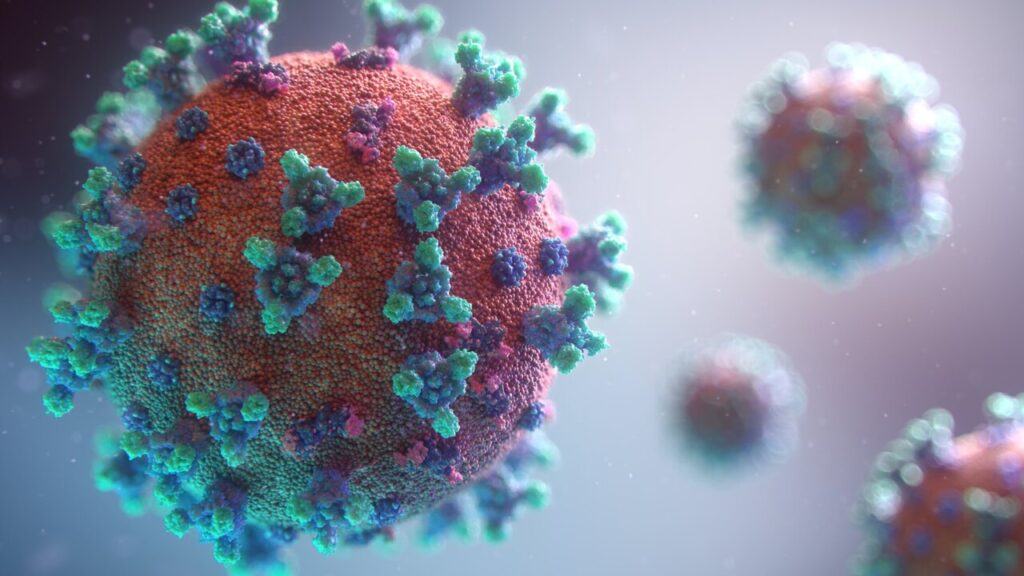Covid-19 Guidelines

About Covid-19
COVID-19 is very serious and very contagious. Since the COVID-19 pandemic first began in early 2020, there have been over 82 million COVID cases and nearly 1 million deaths due to COVID in the U.S. alone. This data is as of mid-May 2022. See the latest stats from the CDC’s COVID Data Tracker.
Symptoms
People with COVID-19 report a variety of symptoms:
- Fever or chills
- Cough
- Shortness of breath or difficulty breathing
- Fatigue
- Muscle or body aches
- Headache
- New loss of taste or smell
- Sore throat
- Congestion or runny nose
- Nausea or vomiting
- Diarrhea
Long COVID/Long Haul COVID/Chronic COVID
While most people with COVID-19 get better within weeks of being sick, some people experience post-COVID health conditions. Post-COVID health conditions are a wide range of new, returning, or ongoing health problems people can experience four or more weeks after first being infected with the virus that causes COVID-19. Even people who did not have COVID-19 symptoms in the days or weeks after they were infected with the virus can have post-COVID health conditions. These conditions are often known as “LONG COVID”, “LONG HAUL COVID” or “CHRONIC COVID”, and they can have different types and combinations of health problems for different lengths of time
Medical and public health experts are also looking into a rare, but serious medical condition associated with COVID-19 called Multisystem Inflammatory Syndrome (MIS) that can occur in both children (MIS-C) and adults (MIS-A). MIS is a health condition where different body parts can become inflamed, including the heart, lungs, kidneys, brain, skin, eyes, or gastrointestinal organs. Experts do not yet know what causes MIS. However, they do know that people with MIS had the virus that causes COVID-19, or had been around someone with COVID-19. MIS can be serious, even deadly. As of mid-May 2022, over 8000 cases of MIS-C have been reported in children. Learn more about MIS-C and its symptoms.
Virus Variants
According to the CDC, there are multiple variants of the virus that causes COVID-19 circulating around the world. Some of these variant viruses – like the Omicron variants – spread more easily and quickly than others, and some cause more serious illness.
The best way to protect yourself and your loved ones against virus variants is to get vaccinated against COVID-19. COVID vaccines provide “fully vaccinated” people with strong protection against serious illness, hospitalization, and death due to COVID-19.
While there have been breakthrough infections of COVID among people who are fully vaccinated, this is expected. COVID vaccines, like all vaccines, are not 100% effective at preventing infection. In addition, people who are moderately or severely immunocompromised due to illness or treatments may not be as protected by the vaccines as those with stronger immune systems. BUT:
- Fully vaccinated people with a vaccine breakthrough infection ARE LESS LIKELY to develop serious illness than those who are unvaccinated and get COVID-19.
- Even when fully vaccinated people develop symptoms, they tend to be less severe symptoms than in unvaccinated people. This means they are much less likely to be hospitalized or die than people who are not vaccinated.
Covid-19 Vaccines
Vaccination is the safest way to help you build protection against COVID-19. COVID-19 can have serious, life-threatening complications, and there is no way to know how COVID-19 will affect you. And if you get sick – even if you have no symptoms – you could spread the disease to friends, family, and other vulnerable people around you.
The COVID-19 vaccines that have been authorized/approved by the FDA and recommended by the CDC are safe and effective.
Pfizer and Moderna vaccines (COVID-19 mRNA vaccines) are preferred for both primary doses and booster doses. You may get Johnson & Johnson’s COVID-19 vaccine in some situations.
- Pfizer – A COVID-19 vaccine made using mRNA technology. Two doses are needed.
- The vaccine is recommended for people 5 years of age and older.
- Moderna – A COVID-19 vaccine made using mRNA technology. Two doses are needed. The vaccine is recommended for people 18 years and older.
- Johnson & Johnson (also known as J&J and Janssen) – A COVID-19 vaccine made using viral vector technology. One dose is required. This vaccine is authorized for people 18 years and older, but is recommended only for those who cannot or choose not to get an mRNA vaccine.
Even though COVID-19 vaccines were developed more quickly than usual, vaccine safety was – and continues to be – a top priority in all phases of vaccine development (clinical trials), authorization/approval and post-authorization/post-approval monitoring. While steps to develop the vaccines were streamlined or overlapped, none of them were skipped.
If you are not vaccinated, please get the COVID-19 vaccine as soon as possible to protect yourself and your loved ones.
Do I Need a Third Primary Dose OR a Booster Dose of COVID Vaccine?
To help you understand the latest recommendations, check out CDC updated COVID-19 vaccine recommendations at https://www.cdc.gov/coronavirus/
